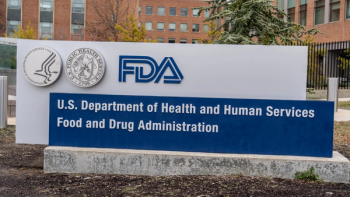
- Pharmaceutical Executive-04-02-2009
- Volume 0
- Issue 0
Shire Joins with GSK to Promote ADHD Drug
Now that Vyvanse, Shire's innovative ADD drug, has been approved for adults, the company needs help to quickly roll out a complex message to neurologists. Its solution: a partnership that takes advantage of GSK's CNS muscle.
Shire and GalxoSmithKline have teamed up to promote Shire’s ADHD treatment Vyvanse to adults. The combined 1,200-person sales force will cover pediatricians and neuro-health physicians in an effort to reach as large a swathe of specialties as possible.
The approval to market the two-year-old Vyvanse to adults was a huge boon for Shire, which faces generics competition to its popular ADHD drug Adderall XR. However, the drug firm was not sure it had the in-house sales force capacity to handle the increased consumer population.
“One of the things that became clear to us when we were looking at marketing to adults was that our model doesn’t fit,” said Mike Yasick, senior vice president and therapeutic area lead for ADHD at Shire. “We have a model of small sales forces dedicated to specialty markets. But when you look at adult ADHD, [which is] poorly diagnosed and treated, you need to contact a lot more physicians.”
Enter GlaxoSmithKline
GSK turned out to be a perfect candidate to come to Shire’s aid, with a strong CNS portfolio and an established neurohealth division. There was also little overlap with Shire’s sales force, making it easy to avoid redundant sales calls.
Rather than outsource or fill new sales positions, GSK will reshuffle its existing neurohealth and primary care sales force, and add Vyvanse to the mix; it’s allotting 600 reps to the drug to supplement Shire’s existing 600-person team. The two companies will share an unspecified percentage of the drug’s profits.
In anticipation of generics competition, Shire pulled promotions from Adderall XR a year and a half ago. Its sales force shifted to Vyvanse exclusively, and will continue to market the treatment to approximately 43,000 pediatricians and pediatric psychiatrists.
The New Wave of ADHD
Vyvanse is therapeutically inactive until it’s metabolized in the body. Unlike extended released products-such as Shire’s Adderall XR-the prodrug technology may help Vyvanse avoid the peaks and valleys of some ADHD treatments. Initially approved for children 6 to 12 years old, the drug was expanded in July 2008 for the treatment of adults over 17 for ADHD.
Whether Vyvanse will make a dent in the coming wave of generic Adderall clones remains to be seen. Shire is banking on the fact that neurologists will like the drug’s smooth release.
“Not only is it smooth, but it’s more consistent from patient to patient; physicians tell us they like Vyvanse because they aren’t surprised by how the drug is being received,” said Yasick. “Drugs that are released through PH or that depend on GI transit time can have a lot of inter-patient variability.”
Articles in this issue
almost 17 years ago
Prescription Abandonment Numbers on the RiseNewsletter
Lead with insight with the Pharmaceutical Executive newsletter, featuring strategic analysis, leadership trends, and market intelligence for biopharma decision-makers.




